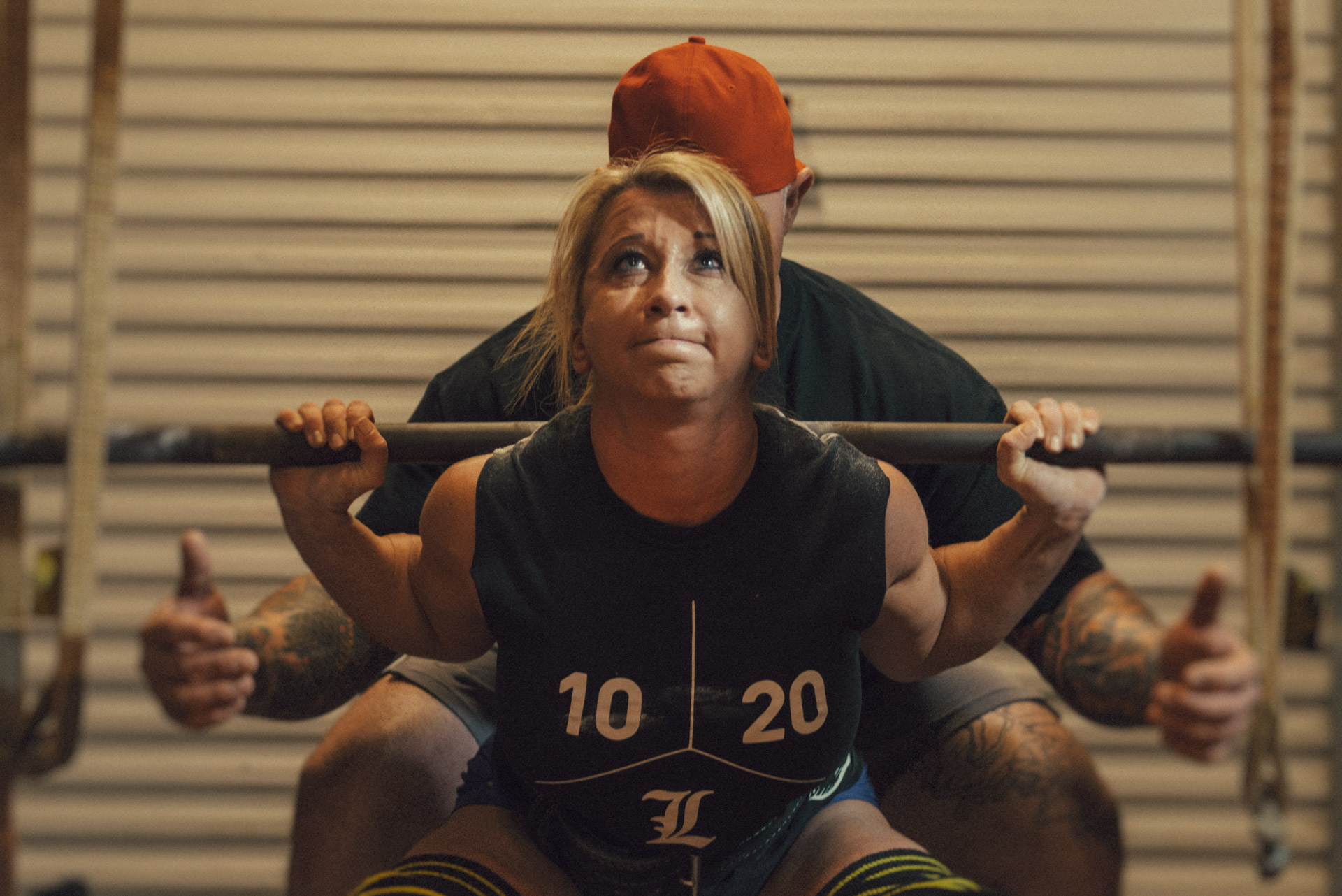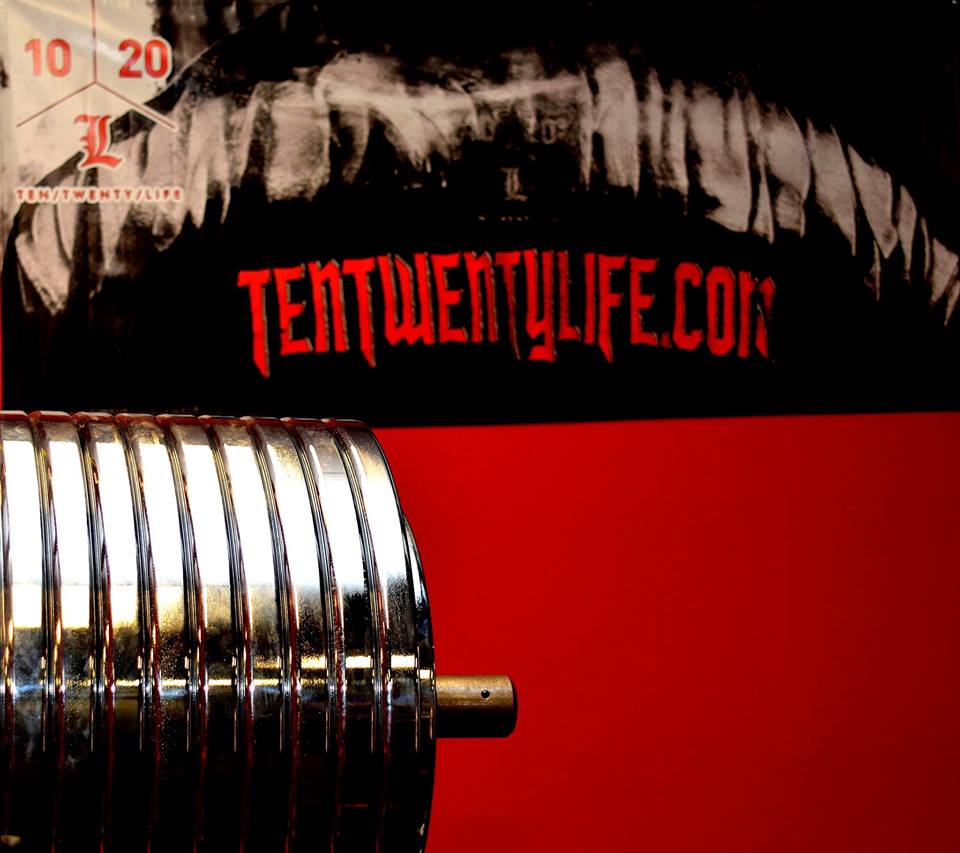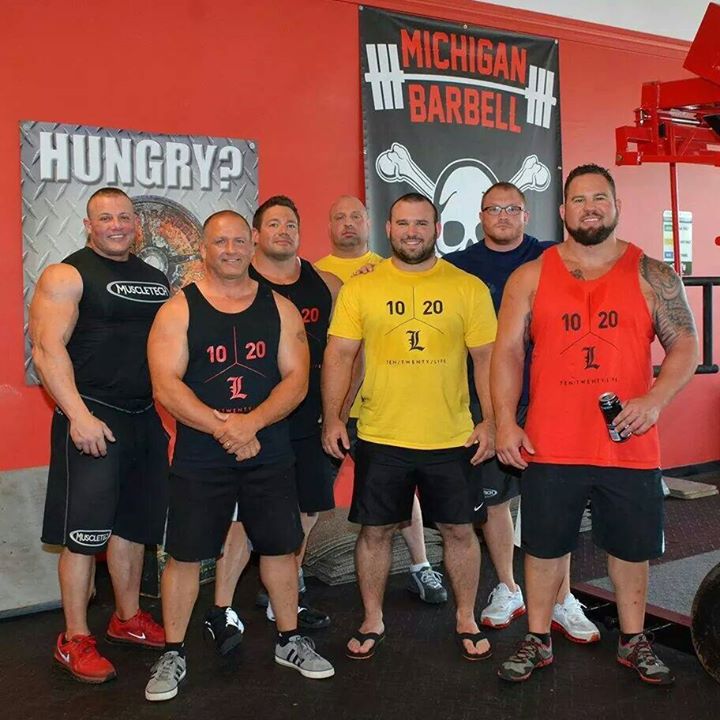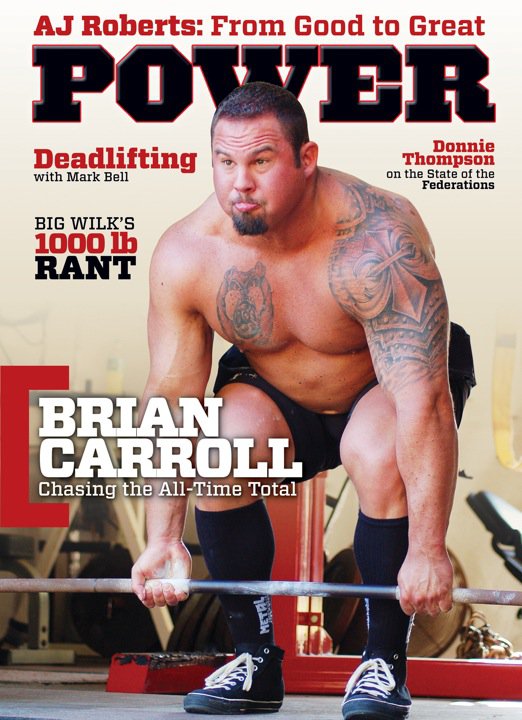
05 Jan Powerlifting and YOUR Health – What’s the REAL DEAL? Part 2
By: Brian Carroll
Read Part 1 HERE
Can Powerlifting be performed to promote health?
In a perfect world, it absolutely can.
If you think of the activity itself and not the sport; from a structural standpoint it can. It can be great for someone morbidly obese that needs something to motivate them to get off their ass, train hard and get healthier.
For those that have bone density issues or even certain cases of problematic or chronic back issues, carefully executing the powerlifts and building a very strong, stiff core along with proper form can be very good for your spine. If they are executed correctly and your form is solid.
Building slabs of muscle can actually help protect your back and lifting heavy can actually increase your bone density. There is a difference between lifting heavy as a gym rat and lifting heavy as a competitive PL. One isn’t always meant to push yourself beyond your limits for a competition and one clearly is. There is a distinction between the two.
Competitive lifting is not going to promote back and joint health, period.
If you compete to win or compete as a sport, this applies to you.
The sport will include pushing the body to the limit. That means sometimes you will lose form when training for max attempts and you will do the same in meets; all the while moving the weight no matter what the cost.
Tweaking muscles, pushing through pain, getting slightly or even badly injured, tearing shit off, breaking bones and wearing joints out from the copious repetitive motions is not going to promote health and is not ideal for ones health.
We didn’t even mention the food intake required to fill out and be strong and we haven’t even touched on the ‘protein supplements’ required for recovery. Let’s not forget the excess body mass created from the excess food and hypertrophy. I don’t care if you’re single digit body fat, your heart still has to work harder to move blood through a larger body. The extra mass taxes the body’s joints and wears them down just doing the simple day to day stuff.
The bottom line is this; anything at a high level and done to the extreme is not going to promote health. We don’t do it for that reason, and most of the time, health is the last thing on our mind.
I think most people understand this, but if you haven’t actually lived this or been close to someone who has, you may not get it. We do what we need to do at that time to accomplish what we set out to do.
I have done many things I’m not proud of in my lifting career; many things that I won’t get into that I know were harmful and very detrimental to my overall health and longevity. That was my choice and the choice I made to compete at the highest level in this sport.
I do consider this from time to time but when it is game day or I’m training for a meet, I do what I have to do to get shit done. But I’ve accepted this long ago. That’s not to say that if I’m faced with some serious health issues that I won’t stop.
When you look at the health issues, I am just recovering from a badly broken sacrum and a litany of other issues. I know it’s probably unwise to continue on with heavy lifting at this level, but it’s what I’ve chosen to do. It is what I love to do and it’s what I do.
How can we minimize health risk? As I navigate through my powerlifting journey I’ve learned a few things that could have saved me some issues that came about from lack of preparation and a lack of using my head.
These few suggestions could help not only save your health; they can give you a long career in lifting and help you both on the platform and off.
1. Drink enough water. What is enough? I can’t legally say, but not drinking enough and getting kidney stones because you were taking too NSAID’s and causing mineral build up in your kidneys is painful as hell. I like to add fresh squeezed lemon too. Great to break down buildups.
2. Get blood work done two times per year and get hooked up with a sports doctor that understands what we do and works with you.
3. Get out and walk three to four times per week. I’m not saying to prep for a marathon, but it’s great for back health, good for your heart and general overall well being.
4. Move like an athlete 24/7. Don’t abuse your body when you’re outside of the gym. There is 168 hours in a week, so the other 155+ hours you aren’t training, move well. Squat, lunge and one leg deadlift to move, pick up and get stuff. Sounds silly at first but after a while of doing it you will feel a difference.
5. Don’t compete too often. You have to decide how often at the end. Think longevity, and don’t be a flash in the pan. Work towards ten years down the road, not ten weeks.
6. Have light weeks. Have weeks where you don’t even go to the gym. Have a fucking life outside the gym, and please fucking deload before you are forced to because you are damn near a cripple. This is a big one, listen to this.
7. Eat badly on occasion, enjoy good tasting food. Why? Because if you eat 100% dialed in year round, you tend to start hating good food and will resent it. It happened to me and I expect it will happen to you. Treat yourself as an athlete but live life a little bit for your own sanity.
8. Take it down a few notches or come off when you are not getting ready for a meet. I’ll leave it at that. You’ll respond so much better when it really matters.
9. Drop the ego. Lift heavy and test only when it matters. Follow a good program and only test when needed. Otherwise, build strength and positive momentum.
10. Everything you do in the gym must have a purpose! Attack weaknesses, have fun with training, and get better at what you suck at. If you don’t improve, it isn’t fun is it?
11. Dial in your Pre/intra/post training nutrition so recovery is optimal. We use Game Plan products and they have an excellent protein powder and a BCAA blend that tastes great.
12. Sleep a lot and sleep in on occasion. Rest is never overrated. Research and take supplements to ensure you are sleeping well. ZMA is a good start.
13. Make sure to have a good multi-vitamin, some D3, Vitamin C and a B complex. Add these to your daily regimen.
14. Get massage and adjustments before you need it, don’t wait until you are forced to make a change. Get some deep tissue massage on the things that hurt, and the areas that need to move freely i.e. ball and socket.
15. Warm-up properly and specific for your needs and what you are doing that day. The McGill Big 3 is a good start and all that I personally use.
The list above will not secure your health or promise that you will be healthy, but it can help negate some of the easily avoidable pitfalls we see each day. Anything you try to be the best in the world will most likely hurt your health sooner than later but if you play your cards right, take your time and do it as safely as possible you can actually eliminate a lot of the unnecessary risks that come with this and have a life outside of lifting.
I’ve done things the wrong way such as competing 8 times in 2008 and I’ve learned the hard way. I’m still learning what the fuck I’m doing. I have not figured it all out, or even close to that, but those that knew me 15 years ago would probably say that I’ve come a long way since then. I hope they can say that again in 15 more years.
Is it worth it – all that we have done, do and will do – it is really worth it? Yes and here is why; I have met my best friends through powerlifting. It’s made me a physically better and mentally stronger person overall.
Despite all of the ups and downs, the turmoil we go through both on and off the platform or competition field some of the best experiences I have had in life was competing. I traveled to states I would have never visited otherwise; met some great people and I have a lot of fun doing it.
Some things I would do over, like the list that I put above; however, we learn best when we screw up and go through the mental and physical agony of failure.
Dave Tate asked me earlier this year if it is worth it and why I wanted to come back even though I’ve already proven to be a good lifter? I said that I have goals to achieve and the ability to help other lifters which makes it all worth it.
He had a hard time with my answer and I understand what he was getting at. I do this for myself as it is a very selfish sport but the enjoyment of helping others achieve their goals along the way is very rewarding. It is a little bit of both for sure.
The silver lining is when we can pass on knowledge to other lifters (that will actually listen) who can have a much smoother path then we did. Seeing someone get it and succeed is worth every doctor visit, every bomb out and every miserable experience.
Yes, it is fucking worth it.
To me pushing the limits is living life to the fullest. Risk. The best way I can say it is we only have one shot. At the same time enjoy the process but don’t forget about what is truly important along the way. Luckily I’ve been able to create the best of both worlds along the way and made some lifelong relationships from it.
That is what is truly important.
The world records, the top placings, the wins, the PR’s, the acknowledgements don’t mean shit if you have nobody to share them with.
Remember that. Don’t be that guy. Make PL a part of your life and share it with others in your life.
GET THE 10/20/LIFE EBOOK HERE!
Brian Carroll
Latest posts by Brian Carroll (see all)
- Protected: -Header Image Post Template 2024 - April 18, 2024
- Brian Carroll X Professor Stu McGill full interview 2024 - April 16, 2024
- Protected: -Video Post Template 2024 - April 15, 2024











Sorry, the comment form is closed at this time.